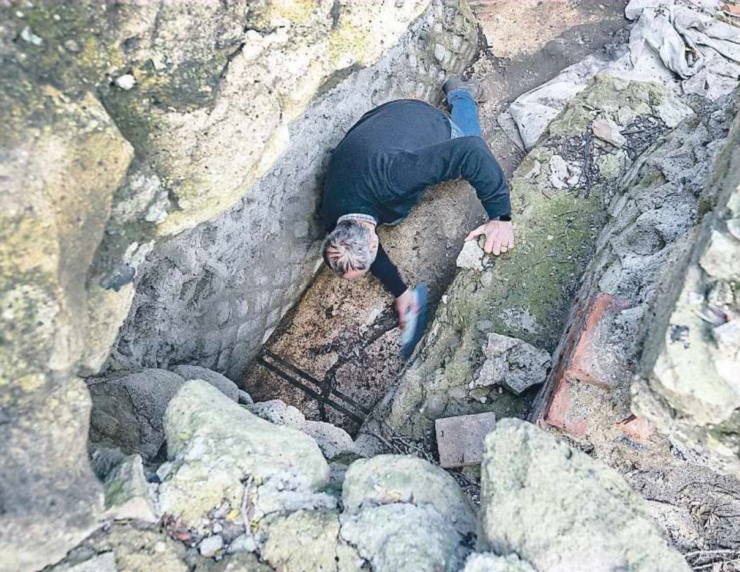Archaeologists from the Oriental University of Naples have excavated a hall in Posillipo, Italy, where Emperors, knights and other dignitaries used to party. The hall once belonged to a Roman Knight and then passed to Emperor Augustus.
The party hall was discovered when researchers were investigating Roman baths used to store weapons during World War II.
Marco Giglio, the head of the excavation, said that while stratigraphic data for the hall, which was used about 2,000 years ago, is incomplete, it could date to the late Republican period or, at the latest, the reign of Augustus. Augustus was the first Roman emperor, ruling from 31 BC until his death in 14 AD. He is remembered for leading the transition from republic to empire following the death of his adoptive great-uncle Julius Caesar. Augustus’ reign lasted for hundreds of years until the definitive end of the Roman Empire. His surname Caesar and title Augustus became the titles of the emperors who sat on the Roman and Byzantine thrones for fourteen centuries after his death.
The hall is thought to be the seaside summer residence of Vedus Pollio, a friend of Emperor Augustus. Publius Vedus Pollio was a Roman politician and knight of the 1st century BC and a friend of the Roman emperor Augustus, who appointed him to a position of authority in the province of Asia, Vedius had authority on behalf of the emperor in the province of Asia. But despite his service to the state, in later life he was remembered for his luxurious tastes and cruelty towards his slaves. When slaves bothered him, he would feed them to the lamprey eels. This was considered an extremely cruel act, and when Vedius tried to inflict it on his slave for breaking a crystal glass, Emperor Augustus (Pollio’s guest at the time) was so horrified that he not only intervened to prevent the execution, but deliberately broke all of Pollio’s precious drinking vessels. When Pollio died, the property became Augustus’.
The hall was decorated with a black and white mosaic carpet and overlooked a 2,000-seat Greek style theater. The theater, known as an ‘Odeon‘, was once used for musical performances. (Odeons can be used for formal meetings as well as musical performances)
